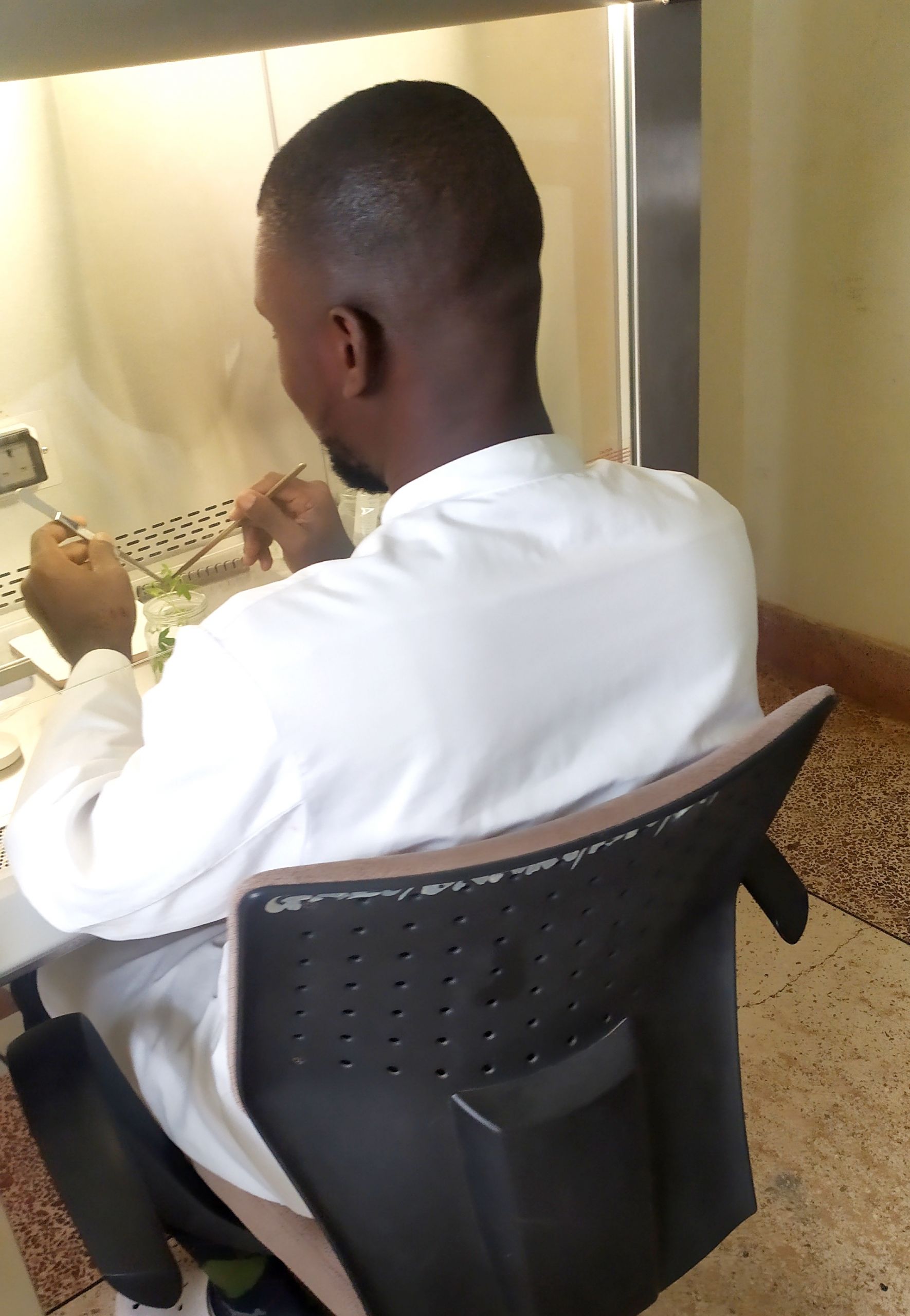
Dennis is a young researcher and science communicator who has recently completed graduate studies in Nuclear Agriculture (M.Phil.). His thesis looked at the influence of the growth regulators 2,4-D and Picloram on in vitro regenerated cassava plantlets. In his free time, he writes a personal blog on science and agriculture.
Tell us a bit about your career. What do you love about your research and how did you get here?
While growing up, I discovered that I was fascinated by plants. This discovery led to my interest in pursuing science-related courses in school to learn more about plants. Then I also discovered my ability to communicate. I figured I could pursue further studies in plant sciences while doing a respectable job explaining the complexities of my studies’ benefits to non-scientific people. I love plant biotechnology and agricultural innovations in general. They present some solutions to the food issues we face here in Africa, and everyone needs education on the importance of using science to solve the food challenges we face as a continent. Through some volunteer engagements and my blog, I like to engage audiences and readers in interesting conversations, activities, or write-ups to pass along a message.
 What advice would you share with young people who hope to contribute to sustainable food systems and farming?
What advice would you share with young people who hope to contribute to sustainable food systems and farming?
Food keeps the world alive. Farming keeps the food coming. Sustainable food systems ensure food and nutrition security, which sustains the human population. More young people able to contribute to sustainable food systems and farming will ensure a hunger-free world for the next generations to come. Young people are innovative and creative. They must take time to learn, understand, appreciate, and contribute to new methods, technologies, and systems that become useful in contributing to food and nutrition security. They should know the future depends on their ideas and actions.
 How can agriculture change to be more sustainable?
How can agriculture change to be more sustainable?
There is a need to understand that, in our quest to feed a given population or make gains or profits off farming, the environment needs to be preserved. Therefore, education on employing environmentally friendly farming systems is much needed to change the face of agriculture.
How can science and innovation help promote sustainability in food and agriculture?
Science and innovation provide solutions to most of our food-related issues. These can only be useful if people understand science and can easily access such innovations. Making science easy to understand and apply and innovations easily accessible will provide modern methods to make food production sustainable because people will then understand their actions and the resulting implications.
In what ways are you leveraging innovation to promote strong food systems? Can you provide specific examples of innovation/technologies that support your work in tangible ways?
In my work, I employed tissue culture. Clonal propagation of cassava is a slow process and allows for easy transmission of pests and diseases, causing economic loss. The use of in-vitro techniques makes it possible to produce disease-free planting materials for farmers at a faster pace. This contributes to food security. Also, in my scientific innovation advocacies, I communicate the importance and role of innovations in Africa and Ghana. For example, Ghana recently approved its first genetically modified crop, the pod borer-resistant cowpea. Its adoption will reduce pesticide use on
How do you see next-generation agricultural technologies contributing to global challenges like food security?
Next-generation agricultural technologies can contribute to food and nutrition security by making food affordable and available for everyone, thereby improving livelihoods, and promoting economies all around the world.
Dennis is just one of many inspirational young people working in agriculture. Visit our NextGen #FoodHeroes page to hear from other next-gen innovators working to improve plant science and nutrition.


